Top 20 Festivals In Vietnam: Iconic Cultural Celebrations From North To South
Vietnam is a country rich in cultural identity, with a deep-rooted heritage that shines through its many traditional festivals across regions. Join Vietnam Original Travel, pack your bags, and set off to explore the most unique festivals in Vietnam—celebrations that attract travelers from all over the world.
A Glimpse Into Festivals In Vietnam
With more than 8,000 festivals celebrated annually across the country, Vietnam is a land of endless color, rhythm, and spiritual meaning. From the misty highlands of the north to the sun-drenched delta of the south, each region brings its own flavor of celebration—rooted in local customs, ancestral worship, agricultural rituals, and religious beliefs.
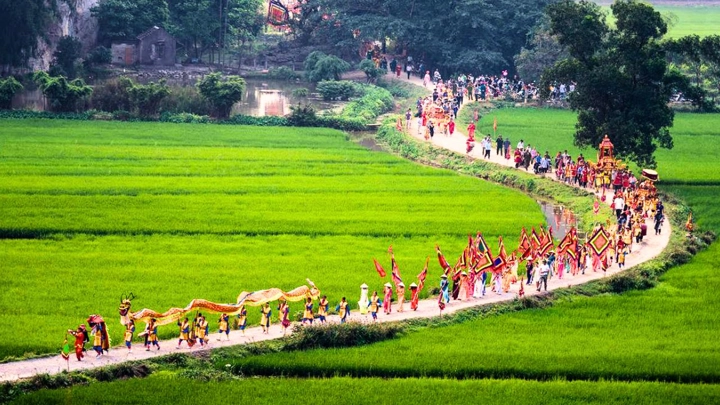
Festivals in Vietnam are more than just vibrant spectacles—they are living expressions of culture and identity. They help preserve ancient traditions, honor deities and ancestors, and strengthen the bonds within communities. For travelers, they offer a rare chance to witness authentic cultural moments and join locals in joyous, meaningful celebrations.
What Makes Festivals In Vietnam Special?
Vietnamese festivals are not only colorful events—they are windows into the soul of a diverse, spiritual, and community-driven culture. Here’s what sets them apart:
Diversity Across Regions, Seasons, And Ethnicities
With 54 ethnic groups and landscapes ranging from towering mountains to coastal plains, Vietnam offers a rich tapestry of regional festivals. Each locality has its own unique celebrations, deeply rooted in local history, customs, and belief systems.
Festivals serve not only as spiritual gatherings to honor deities and ancestors but also as an opportunity for communities to express pride in their cultural identity and promote their local heritage to the world. From highland rituals in the noth to boat races in the southern delta, every festival tells a different story of Vietnam’s vibrant cultural landscape.

A Blend Of Spirituality, Art, And Community
Vietnamese festivals are deeply spiritual, often intertwined with religious or folk beliefs that reflect people’s desires for prosperity, good health, peace, and harmony. They serve as sacred moments when people reconnect with the divine, nature, and each other.
Beyond the rituals, festivals come alive with colorful processions, traditional games, music, dance, and costumes—all of which contribute to a communal atmosphere of celebration. These artistic and symbolic elements are not just for show—they are meaningful expressions of hope, gratitude, and solidarity within Vietnamese society.
A Cultural Bridge That Welcomes Travelers
Festivals in Vietnam are not just for locals—they’re invitations. Travelers are often welcomed with open arms to join in the processions, share traditional food, and learn the stories behind each ritual. Participating in a local festival offers tourists authentic, immersive experiences that go beyond sightseeing. It’s an opportunity to truly connect with Vietnamese culture and people. This is why festivals have become a powerful part of Vietnam’s cultural tourism appeal.

Top 20 Festivals In Vietnam You Shouldn’t Miss
National Festivals & Lunas Celebrations
Lunar New Year (Tet)
Location: Nationwide
Date: 1st-3rd day of the Lunar Calendar (late January to mid-February)
Lunar New Year, or Tet, is the most significant and widely celebrated festival in Vietnam. It marks the arrival of spring and a fresh start for a new lunar year. In the days leading up to Tet, households across the country are busy with cleaning, decorating, and preparing traditional foods like bánh chưng and pickled vegetables. The first few days are reserved for family gatherings, ancestral worship, and lucky money (li xi) for children. Colorful flower markets, firework displays, and dragon dances add to the festive atmosphere. Deeply rooted in Vietnamese spiritual life, Tet is more than just a holiday—it reflects the importance of family bonds, respect for ancestors, and hope for prosperity and good fortune in the year ahead.

Mid-Autumn Festival (Tet Trung Thu)
Location: Nationwide
Date: 15th day of the 8th Lunar Month (usually September)
Mid-Autumn Festival, or Tet Trung Thu, is a cherished celebration for children and families across Vietnam. Traditionally a harvest festival under the full moon, it has become known as the “Children’s Festival,” marked by joyful lantern parades, lion dances, and mooncake sharing. In the lead-up to the holiday, streets are lined with colorful star-shaped lanterns, traditional toys, and stalls selling sticky rice cakes with salted egg yolk fillings. On the night of the full moon, children dressed in vibrant costumes parade with lanterns, while communities organize lion dance performances and storytelling events. Beyond its festive charm, Tet Trung Thu is a time for family reunion, expressing love for children, and celebrating the harmony between humans and nature.

Hung Kings’ Anniversary (Gio To Hung Vuong)
Location: Hung Kings Temple, Viet Tri City, Phu Tho Province
Date: 10th day of the 3rd Lunar Month
The Hung Kings’ Anniversary is a solemn national celebration honoring the legendary founders of the Vietnamese nation—the Hung Kings. Held at Nghia Linh Mountain in Phu Tho Province, the festival draws thousands of visitors each year who come to pay tribute at the ancient temples. The highlight is a grand incense-offering ceremony, attended by state leaders and pilgrims alike, followed by processions, bronze drum performances, and folk games. Rooted in the Vietnamese proverb “Uong nuoc nho nguon” (When drinking water, remember its source), the festival reflects deep gratitude toward the nation’s ancestors. Recognized as a national holiday, it fosters patriotism, unity, and cultural pride among all generations of Vietnamese people.

Vietnam National Day
Location: Nationwide (notably in Hanoi, Ho Chi Minh City, and major cities)
Date: September 2nd
Vietnam National Day marks the anniversary of President Ho Chi Minh’s declaration of independence from French colonial rule in 1945. Celebrated nationwide, the day is filled with patriotic pride and vibrant activities. In Hanoi, crowds gather at Ba Dinh Square—where the historic speech was delivered—to witness solemn flag-raising ceremonies, military parades, and cultural performances. Cities and towns are adorned with red flags and banners, while firework displays and music events energize the night. More than just a public holiday, National Day is a moment for every Vietnamese citizen to reflect on the country’s journey to independence, its enduring resilience, and the shared hope for a brighter future.

Vu Lan Festival
Location: Nationwide, with major celebrations in Buddhist temples across Vietnam
Date: 15th day of the 7th lunar month
Also known as the Ghost Festival or Ullambana, Vu Lan is one of the most sacred Buddhist celebrations in Vietnam. It is a time for expressing gratitude to parents—especially mothers—and remembering ancestors. On this day, people visit temples to offer prayers, release birds and fish as acts of merit, and perform rituals to help wandering souls find peace. One of the most touching traditions is the rose ceremony, where individuals wear red roses if their mothers are still alive and white ones if their mothers have passed away. The festival embodies deep values of filial piety and compassion, making it a meaningful occasion for spiritual reflection and familial love.
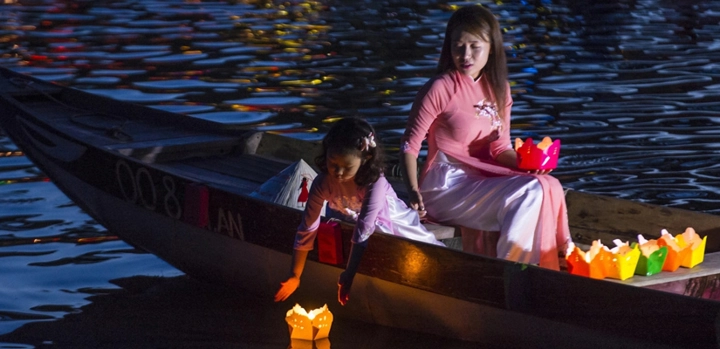
Regional & Cultural festivals
Huong Pagoda Festival
Location: Huong Son Commune, My Duc District, Hanoi
Date: From the 6th day of the 1st lunar month to the end of the 3rd lunar month
Huong Pagoda Festival is the largest and longest Buddhist festival in Vietnam, drawing millions of pilgrims to the sacred Huong Son landscape. Taking a boat ride along the Yen Stream, visitors immerse themselves in poetic scenery before ascending to the Huong Tich Cave—the heart of the pilgrimage—where they pray for health, prosperity, and good fortune. The festival is a rich blend of spiritual rituals and natural exploration, with incense offerings, bell chimes, and chanting echoing through limestone mountains. Beyond its religious significance, it also reflects Vietnamese appreciation for nature and harmony. The journey to Huong pagoda is not just a pilgrimage but also a meditative retreat into the heart of Vietnamese spiritual life.

Lim Festival
Location: Tien Du District, Bac Ninh Province
Date: 13th day of the 1st lunar month
Held in the heart of the ancient Kinh Bac region, Lim Festival is a vibrant celebration of Quan ho—a traditional folk singing style recognized by UNESCO as intangible cultural heritage. The festival honors Lady King (Vua Ba), believed to be the founder of this musical tradition. Visitors can enjoy melodic Quan ho duets performed on dragon boats, witness ritual ceremonies, and participate in folk games such as swinging contests, wrestling, and weaving competitions. Lim Festival beautifully combines spirituality, artistry, and community, offering a deep insight into Northern Vietnam’s cultural essence. It’s a must-visit for anyone seeking to experience the poetic soul of Vietnamese spring festivals.

Giong Festival
Location: Phu Dong and Soc Temples, Hanoi
Date: 6th to 12th day of the 1st lunar month (main days: 6th at Phu Dong Temple, 6th–8th at Soc Temple)
The Giong Festival honors Saint Giong, a legendary hero who, according to folklore, grew into a giant and rode an iron horse to defeat foreign invaders. Recognized by UNESCO as an intangible cultural heritage, the festival takes place in both Phu Dong (his birthplace) and Soc Temple (where he ascended to heaven). Reenactments of the battles, ceremonial processions, and traditional rituals are central to the celebration, drawing thousands of participants and spectators. Deeply spiritual and symbolic, Giong Festival is not only a tribute to patriotism and national pride but also a vivid expression of communal strength and Vietnamese resilience across generations.

Yen Tu Festival
Location: Yen Tu Mountain, Uong Bi City, Quang Ninh Province
Date: From the 10th day of the 1st lunar month (lasts for about three months)
Set amidst the misty peaks of Yen Tu Mountain, this festival is one of Vietnam’s most important Buddhist pilgrimages. It commemorates King Tran Nhan Tong, who renounced his throne to found the Truc Lam Zen sect here in the 13th century. Pilgrims from across the country ascend the sacred mountain to reach Dong Pagoda at its summit, praying for peace and enlightenment. Along the way, they stop at ancient pagodas, towers, and temples, enveloped in serene natural beauty. Yen Tu Festival not only embodies Vietnam’s deep-rooted spiritual traditions but also offers a reflective journey blending physical challenge, historical reverence, and inner peace.

Ha Long Carnaval
Location: Ha Long City, Quang Ninh Province
Date: Late April or early May (coinciding with Ha Long Tourism Week)
Held along the vibrant streets of Ha Long City or by the stunning Bai Chay Beach, Ha Long Carnaval is a spectacular celebration of culture, tourism, and community. Unlike traditional spiritual festivals, this event dazzles with colorful parades, LED-lit floats, street dances, and elaborate performances that blend modern and ethnic styles. Artists and performers from across Vietnam and international delegations join together in a joyous showcase of creativity and unity. As night falls, the festivities culminate in a grand fireworks display. Ha Long Carnaval not only boosts tourism but also spotlights the lively spirit and cultural diversity of this coastal gem.
Hue Festival
Location: Hue City, Thua Thien–Hue Province
Date: Every two years, typically in April, June, or July
Hue Festival is a biennial cultural extravaganza that transforms the ancient capital into a grand stage celebrating both Vietnamese and international heritage. Set against the backdrop of royal citadels, imperial palaces, and poetic rivers, the festival features a rich lineup of events: áo dài shows, traditional court music (Nha Nhac), royal banquets, street performances, lantern displays, and art exhibitions. Delegations from countries around the world also bring their unique cultural expressions, turning Hue into a melting pot of global creativity. More than just a celebration, Hue Festival revives the elegance of imperial Vietnam and strengthens cultural diplomacy in a vibrant, modern way.
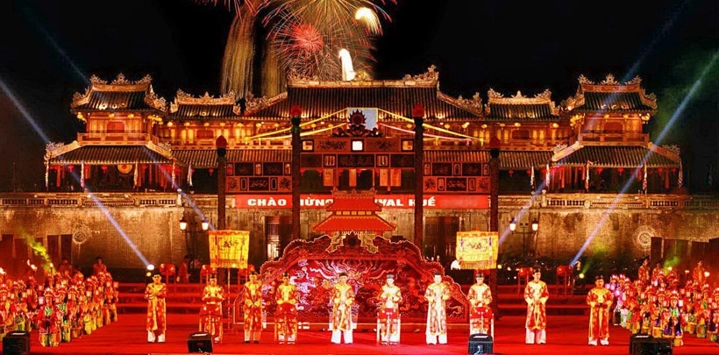
Kate Festival
Location: Po Nagar Tower (Nha Trang), Po Klong Garai Tower (Phan Rang), and other Cham temple sites in Ninh Thuan Province
Date: Around the beginning of the 7th month of the Cham calendar (usually late September or early October in the Gregorian calendar)
Kate Festival is the most important celebration of the Cham people following the Brahmanist tradition, held to honor deities like Po Nagar and kings such as Po Klong Garai. Taking place at ancient Cham temple towers, the festival features sacred rituals performed by priests and village elders, followed by vibrant folk performances with traditional Cham music and dance. Women wear colorful brocade costumes, while men play the ginang (drum) and saranai (flute) to accompany ceremonial processions. Beyond its religious significance, the Kate Festival is a vibrant showcase of Cham identity, craftsmanship, and community spirit, inviting outsiders to witness a living heritage preserved for generations.
Ok Bom Bok Festival
Location: Provinces with large Khmer communities, especially in Tra Vinh and Soc Trang
Date: 15th day of the 10th lunar month (usually in November)
Ok Om Bok, also known as the Moon Worship Festival, is a major spiritual and cultural event for the Khmer people in Southern Vietnam. Held during the full moon of the 10th lunar month, the festival expresses gratitude to the Moon God for a bountiful harvest. The ritual involves children receiving flat rice (cốm dẹp), bananas, sweet potatoes, and other offerings while elders pray for health and prosperity. In the evening, thousands gather by rivers and lakes to release flower lanterns, creating a magical scene of lights and wishes. A highlight of the celebration is the Ngo boat race, where long, dragon-shaped boats glide through the water in a thrilling competition, reflecting both the athleticism and unity of the Khmer communities.

Gong Festival
Location: Central Highlands provinces, especially Gia Lai, Dak Lak, Kon Tum, Lam Dong
Date: Varies by ethnic group and harvest season; major festivals often held in March or December
Deep in the heart of Vietnam’s Central Highlands, the Gong Festival is a spiritual and cultural celebration of the ethnic minorities who have lived in harmony with nature for generations. Centered around the Space of Gong Culture—recognized by UNESCO as an Intangible Cultural Heritage—the festival features vibrant performances of bronze gongs, traditional dances, and community rituals. Each resounding gong beat is believed to connect the human and spiritual worlds, calling upon the gods for blessings, health, and prosperity. Visitors can immerse themselves in a soulful atmosphere of rhythmic melodies, enjoy local cuisine, and witness ceremonies that embody the deep-rooted communal spirit of the highland peoples.

Spiritual & Unique Festivals
Whale Worshiping Festival (Nghing Ong)
Location: Coastal provinces in Southern Vietnam, especially Can Gio (Ho Chi Minh City), Vung Tau, and Binh Thuan
Date: Varies by region; typically from the 15th to 18th day of the 8th lunar month
As one of the most sacred marine festivals in Southern Vietnam, the Whale Worshiping Festival reflects the strong spiritual beliefs of coastal fishing communities. Locals honor Ca Ong (the Whale), regarded as a guardian deity who protects fishermen at sea and brings bountiful catches. The festival begins with a solemn ritual to welcome the whale spirit ashore, followed by vibrant parades, lion dances, and traditional boat racing. Incense-filled altars, folk performances, and offerings illustrate deep respect for nature and ancestral gratitude. Beyond its religious significance, the festival is a lively communal gathering, drawing both locals and curious visitors seeking a glimpse into the spiritual rhythms of Vietnam’s seafaring life.

Ba Chua Xu Festival
Location: Sam Mountain, Chau Doc City, An Giang Province
Date: 23rd to 27th day of the 4th lunar month
Held at the foot of the sacred Sam Mountain, the Ba Chua Xu Festival is one of the largest spiritual events in Southern Vietnam. It pays homage to Lady of the Realm (Ba Chua Xư), a revered local deity believed to grant protection, blessings, and prosperity. The festival features elaborate rituals, including statue bathing, procession ceremonies, and incense offerings, attracting thousands of pilgrims from across the country. Spiritual devotion blends with lively cultural displays like traditional music, food stalls, and folk games. This deeply rooted tradition not only highlights the spiritual beliefs of the Mekong Delta but also showcases the hospitality and vibrant life of An Giang’s local communities.

Elephant Racing Festival
Location: Don Village, Buon Don District, Dak Lak Province
Date: March (biennially, depending on the local cultural calendar)
Held in the majestic Central Highlands, the Elephant Racing Festival is a thrilling and symbolic celebration of the bond between humans and elephants. This rare spectacle takes place in Don Village, where ethnic minorities like the Ede and M’nong have long been known for their elephant-taming traditions. Majestic elephants, guided by skilled mahouts, race across vast fields or through shallow rivers to the cheers of excited crowds. The festival also includes traditional gong performances, folk dances, and buffalo sacrifice ceremonies. Beyond the competition, it’s a proud showcase of the highlanders’ heritage, courage, and reverence for nature, drawing both local and international visitors alike.

Hoi An Lantern Festival
Location: Hoi An Ancient Town, Quang Nam Province
Date: Monthly, on the 14th day of the lunar calendar
Once a month, under the soft glow of the full moon, Hoi An transforms into a magical world of light and tranquility. The Lantern Festival celebrates the town’s spiritual traditions and historic charm. On this night, motorized vehicles are banned from the Old Quarter, allowing pedestrians to wander through lantern-lit alleys and ancient houses. Locals and tourists alike release floating lanterns onto the Thu Bon River, each carrying prayers for peace, love, and prosperity. Traditional music, lion dances, calligraphy, and folk games add to the joyful atmosphere. The festival is a must-see for those seeking a peaceful yet deeply cultural experience in Vietnam.
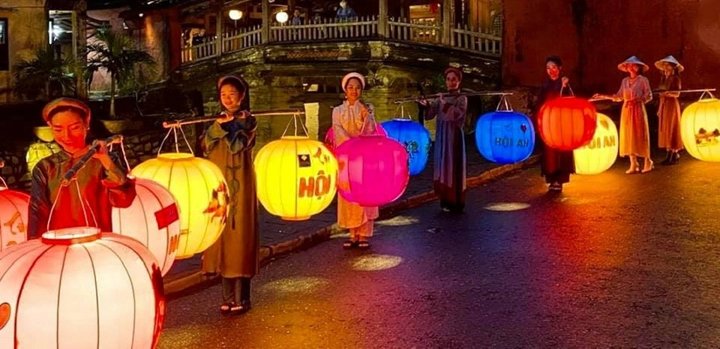
Phu Day Festival
Location: Kim Thai Commune, Vu Ban District, Nam Dinh Province
Date: From the 3rd to the 8th day of the 3rd lunar month
Held in honor of Mother Goddess Lieu Hanh, Phu Day Festival is a major event of Vietnam’s Mother Goddess Worship—a UNESCO-recognized intangible cultural heritage. Taking place in the goddess’s legendary homeland, this spiritual gathering attracts thousands of pilgrims who come to pray, offer incense, and witness the mystical spirit medium rituals known as hau dong. Alongside solemn ceremonies like incense offering and palanquin processions, the festival also features folk games such as tug-of-war, wrestling, and rooster fights, as well as traditional chau van singing. Phu Day Festival offers a unique glimpse into Vietnamese spiritual life and the vibrant traditions that continue to thrive in the modern era.
Vietnamese Mud Ball Wrestling Festival (Hoi Vat Cau Nuoc Viet Yen)
Location: Van Village, Van Ha Commune, Viet Yen District, Bac Giang Province
Date: From the 12th to the 14th day of the 4th lunar month (held every four years)
As one of the most unique festivals in Northern Vietnam, this event is deeply rooted in wet rice culture and reflects the agricultural community’s hopes for favorable weather and abundant harvests. Held only once every four years, the festival attracts large crowds of visitors with its vibrant and symbolic rituals. The main event takes place in a muddy arena, where two pits are placed at each end of the field. Strong young men, known as “quan cau” (ball players), compete to carry a 20kg wooden ball into the opponent’s pit. This mud ball wrestling festival is more than just a traditional folk game—it plays a vital role in the spiritual and cultural life of Bac Giang residents, symbolizing community unity and a collective wish for a prosperous future.

Tips For Attending Festivals In Vietnam
Participating in a traditional Vietnamese festival can be one of the most memorable parts of your trip. These events are not only colorful and joyful but also deeply rooted in spiritual and community life. To make the most of your experience, here are some essential tips:
Dress Modestly And Comfortably
Be respectful: When visiting spiritual festivals at temples or pagodas, wear modest clothes that cover your shoulders and knees. Avoid overly revealing outfits—especially for women—as they may be considered disrespectful.
Stay comfortable: Choose light, breathable clothing suitable for the weather, and wear comfortable shoes. Many festivals involve walking long distances or standing for extended periods.

Arrive Early
Many key rituals or performances happen at scheduled times. Arriving early allows you to find a good viewing spot, avoid traffic, and enjoy the atmosphere before it gets too crowded.
Respect Local Culture
Do your homework: Learn about the meaning, history, and main activities of the festival beforehand. This helps you appreciate what you’re witnessing and avoid cultural faux pas.
Observe before acting: Watch how locals behave and follow their lead. Avoid shouting, laughing loudly, or showing disrespect in sacred spaces.
Mind your manners: Don’t push, shove, or cut in line—even if others do. Keeping a polite, calm attitude goes a long way.
Protect The Environment
Don’t litter: Dispose of trash properly and help keep the festival grounds clean. Many festivals take place in natural or religious settings—let’s keep them beautiful.
Keep Yourself Safe
Watch your belongings: Pickpocketing can occur in crowded areas. Carry only what you need and keep your valuables secure.
Stay with your group: If you’re traveling in a group, avoid getting separated. Set a meeting point in case someone gets lost.
Immerse Yourself
Join in the fun: Don’t be shy—try traditional games, join the dances, or chat with locals. It’s a great way to experience the authentic vibe.
Capture the memories: Take photos or videos of beautiful moments, but do so respectfully. Some rituals or locations may not allow photography.
Enjoy the atmosphere: Most importantly, allow yourself to relax, explore, and absorb the energy and excitement of the celebration.
Top 20 Festivals In Vietnam: Let your Festive Journey Begin
Festivals in Vietnam serve as a cultural bridge, connecting the past with the present while honoring the country’s sacred values. They offer a meaningful occasion for people to return to their roots, enjoy festive activities, strengthen relationships, and explore the richness of traditional Vietnamese culture. The 20 festivals mentioned above provide a unique glimpse into the diverse cultural identities across the nation. If you’re eager to gain a deeper understanding of Vietnam’s spiritual and cultural life, don’t miss the chance to take part in these meaningful celebrations.
>>> Top 15 Best Places to Go Kayaking in Vietnam: Scenic Routes You Shouldn’t Miss
>>> Top 20 Night Markets in Vietnam—A Cultural Feast After Sunset
Send us your comments about : Top 20 Festivals In Vietnam: Iconic Cultural Celebrations From North To South
Required fields *
You might also be interested
Travel ideas
Need some inspiration? Discover some of the best tours in Vietnam, which are highly appreciated by our clients. An excellent starting point to help you choose the right trip to Vietnam, Laos, Cambodia, Burma or Thailand, whether you are traveling alone, as a couple, as a family or with friends.
And because this trip is yours, feel free to customize it as you wish!
Vietnam Cambodia Itinerary 14 Days
Hanoi – Hoa Binh – Mai Chau – Ninh Binh – Halong bay – Hue - Danang – Hoian – Saigon – Ben Tre - Can Tho – Saigon - Siem Reap Angkor - Tonlé Sap - Siem Reap – Ta Prohm - Departure
Vietnam and Laos 14 days
Saigon - My Tho - Da Nang- Hoian – Hue - Hanoi - Halong Bay - Vientiane Luang Prabang - Pak Ou – Khuang Si - Luang Prabang – Departure
Honeymoon Tour Packages In Vietnam 12 Days
Saigon Arrival - City Tour – Mekong Delta – Danang – Hoian - by flight - Da Nang – Hanoi - by flight – Halong - overnight on junk – Departure
Authentic Hoang Su Phi Trekking Tours
Hoang Su Phi trekking tours take you to stunning terraces, meet few tourists, connect with locals and enjoy authentic culture.
The Best of Ha Giang Trekking Tours
Discover Ha Giang on trekking tours where you live local life, enjoy breathtaking views and escape the crowded routes.
Vietnam Itinerary 2 Weeks
Hanoi - Ninh Binh - Lao Cai - Sapa - Muong Hum market - Ha Long Bay - Hue - Danang - Hoi An - Saigon - Mekong Delta - Cai Rang floating market - Departure
Are you interested in this tour?



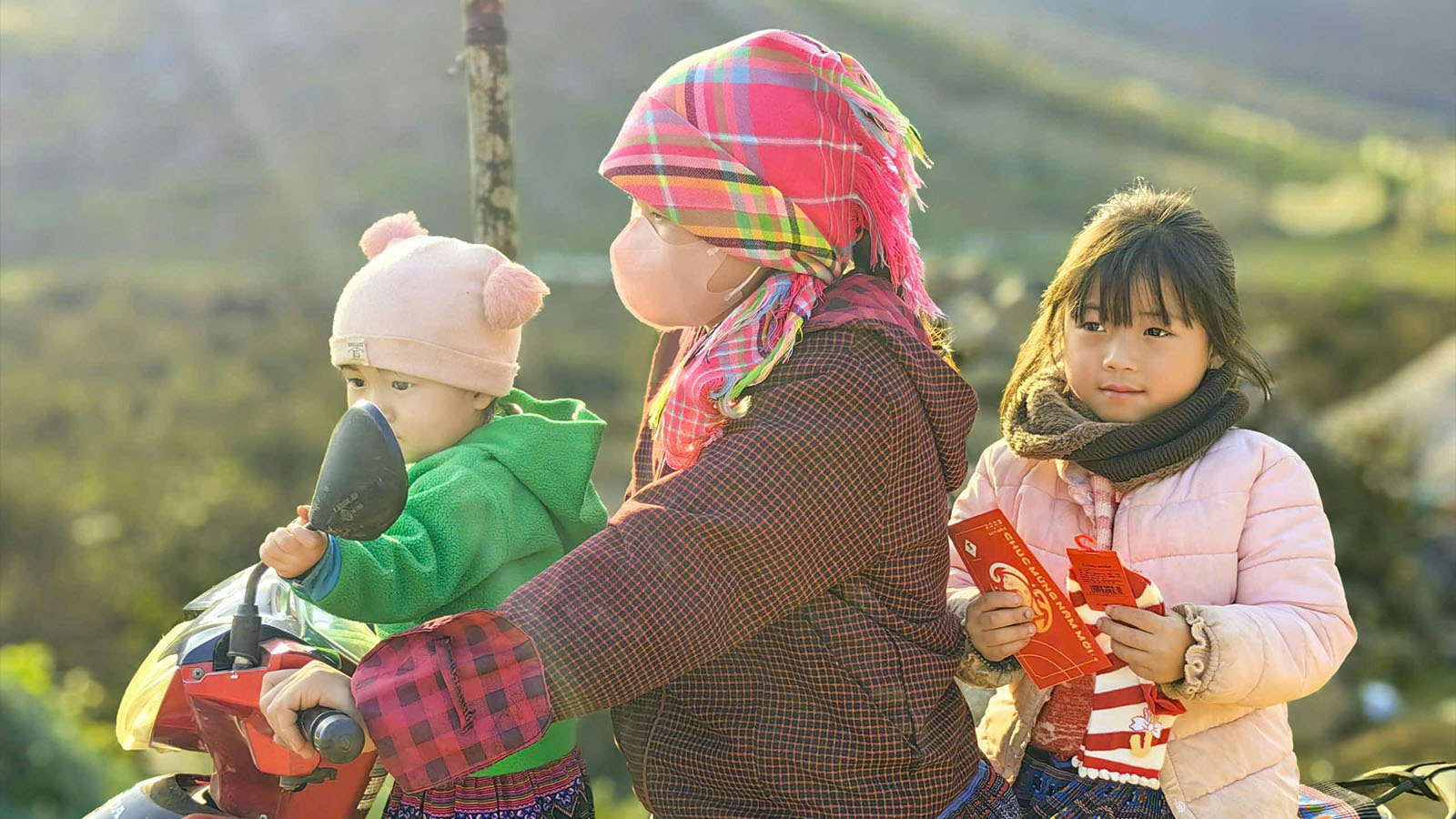
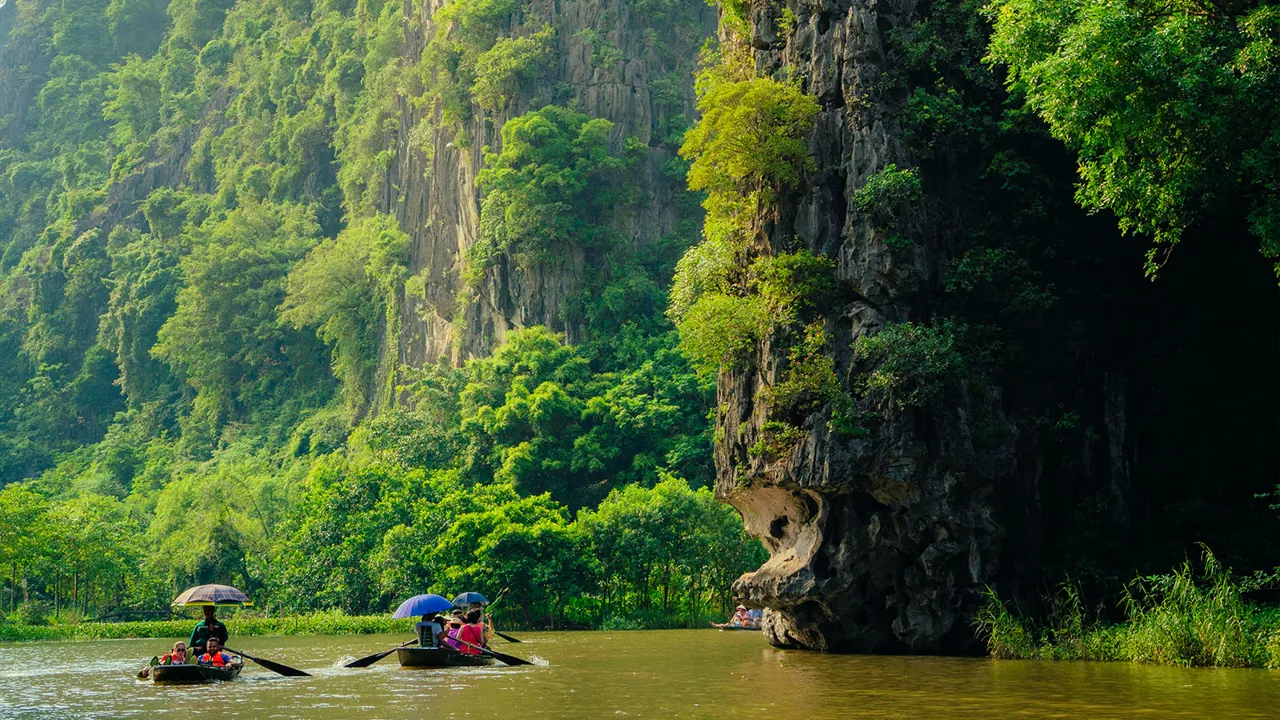
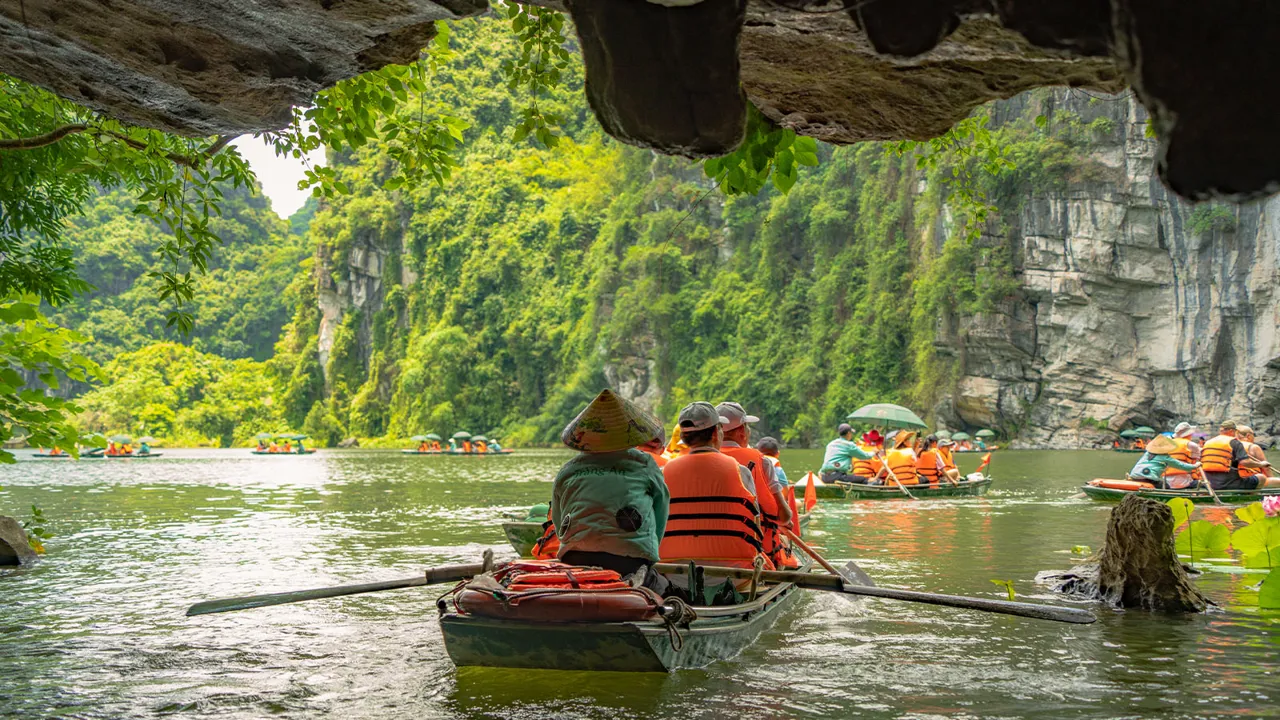
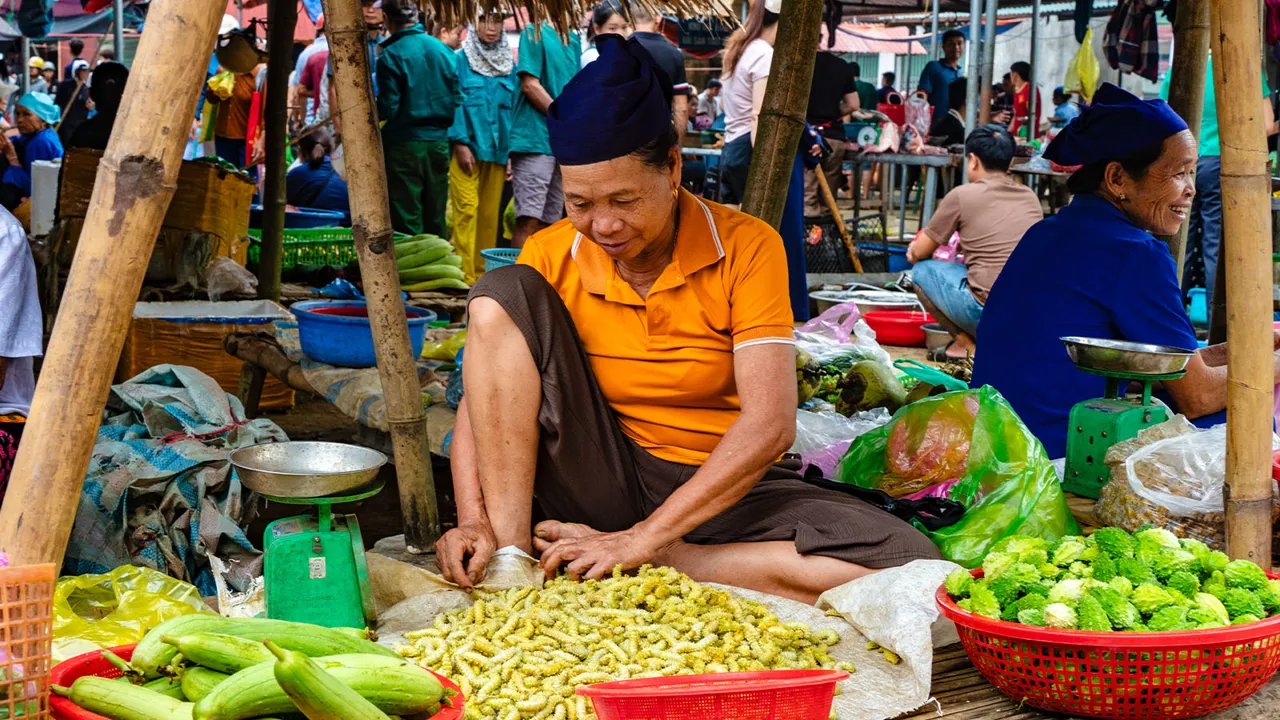
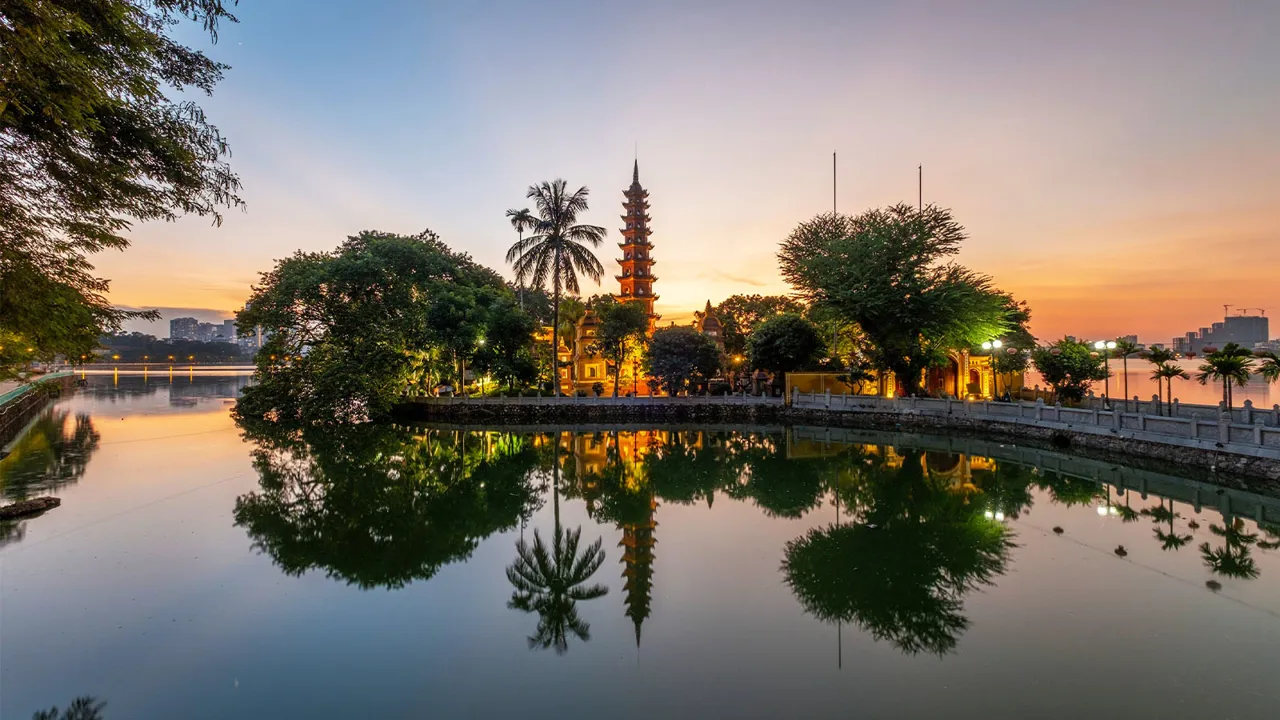

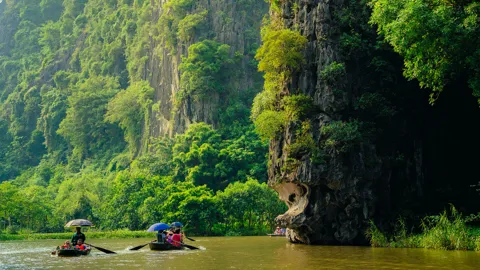







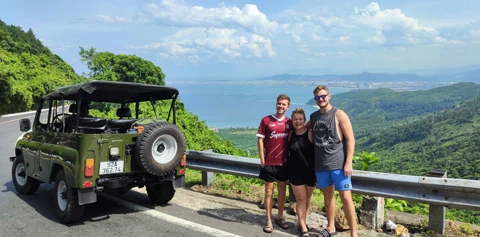







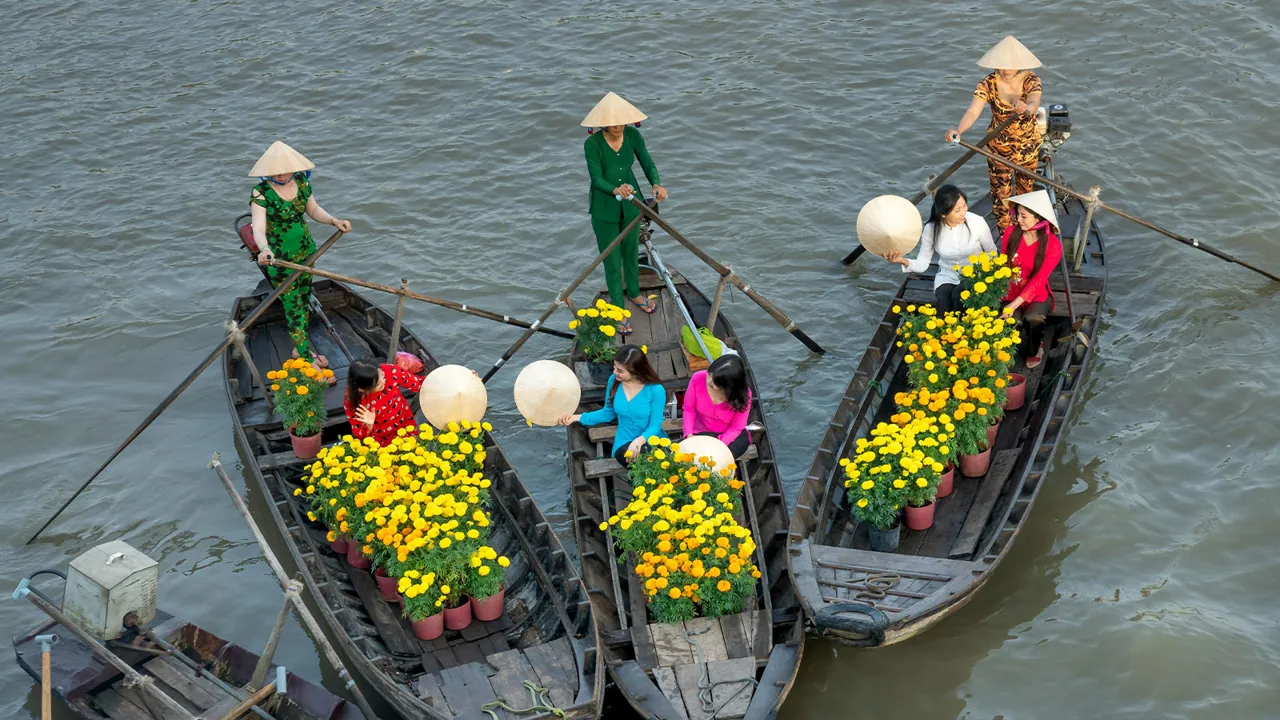




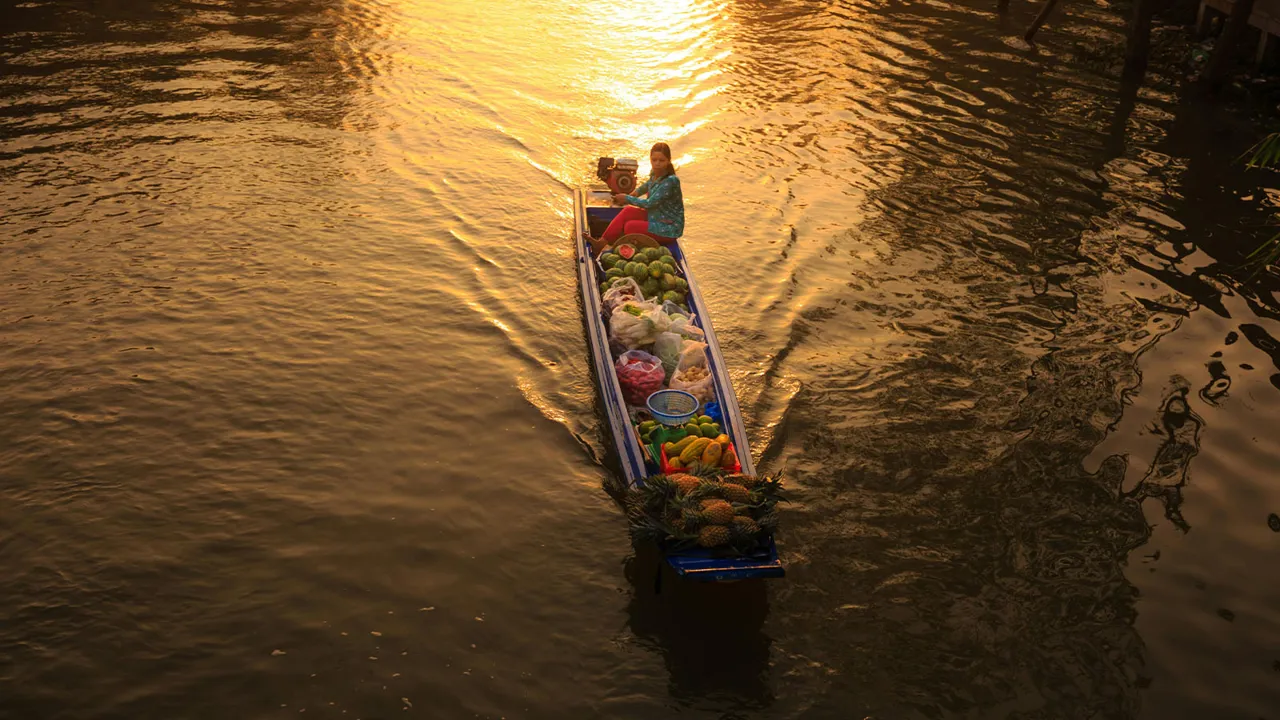
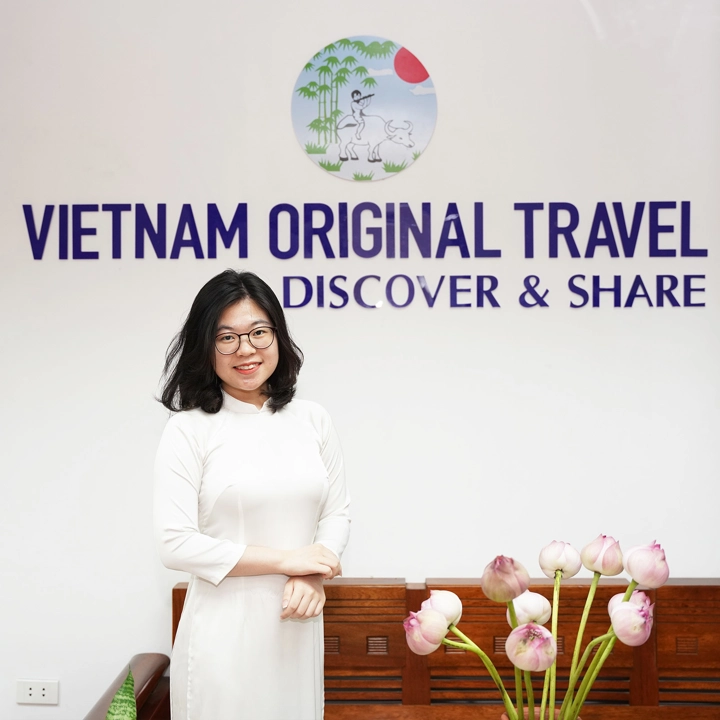
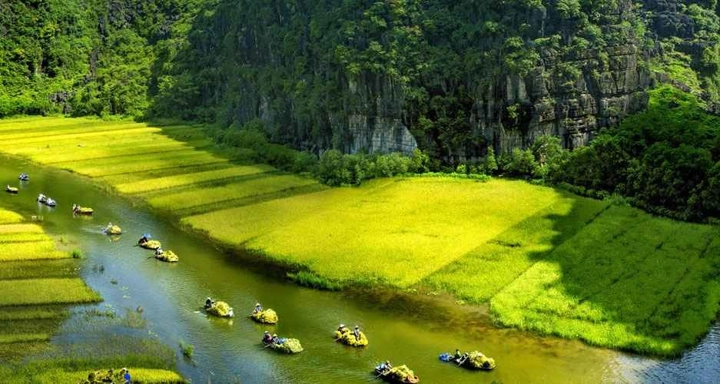
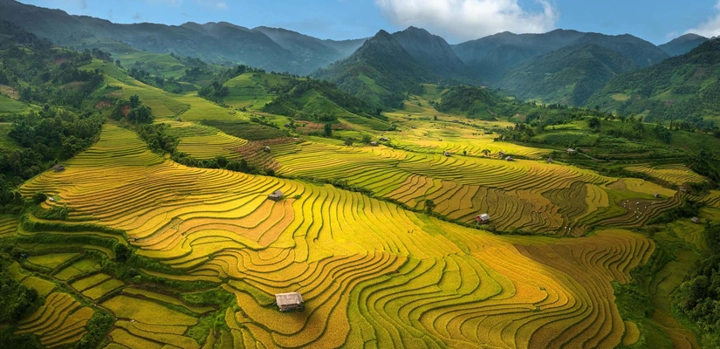

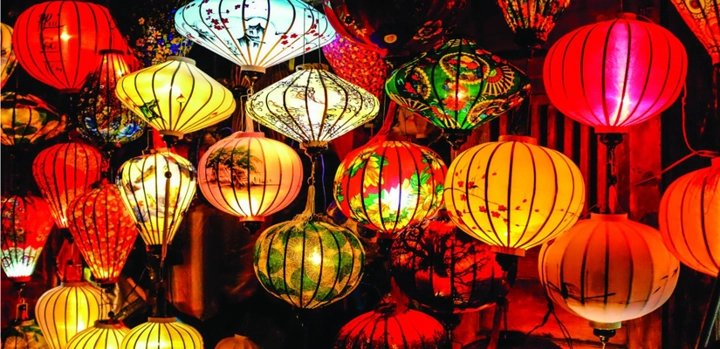
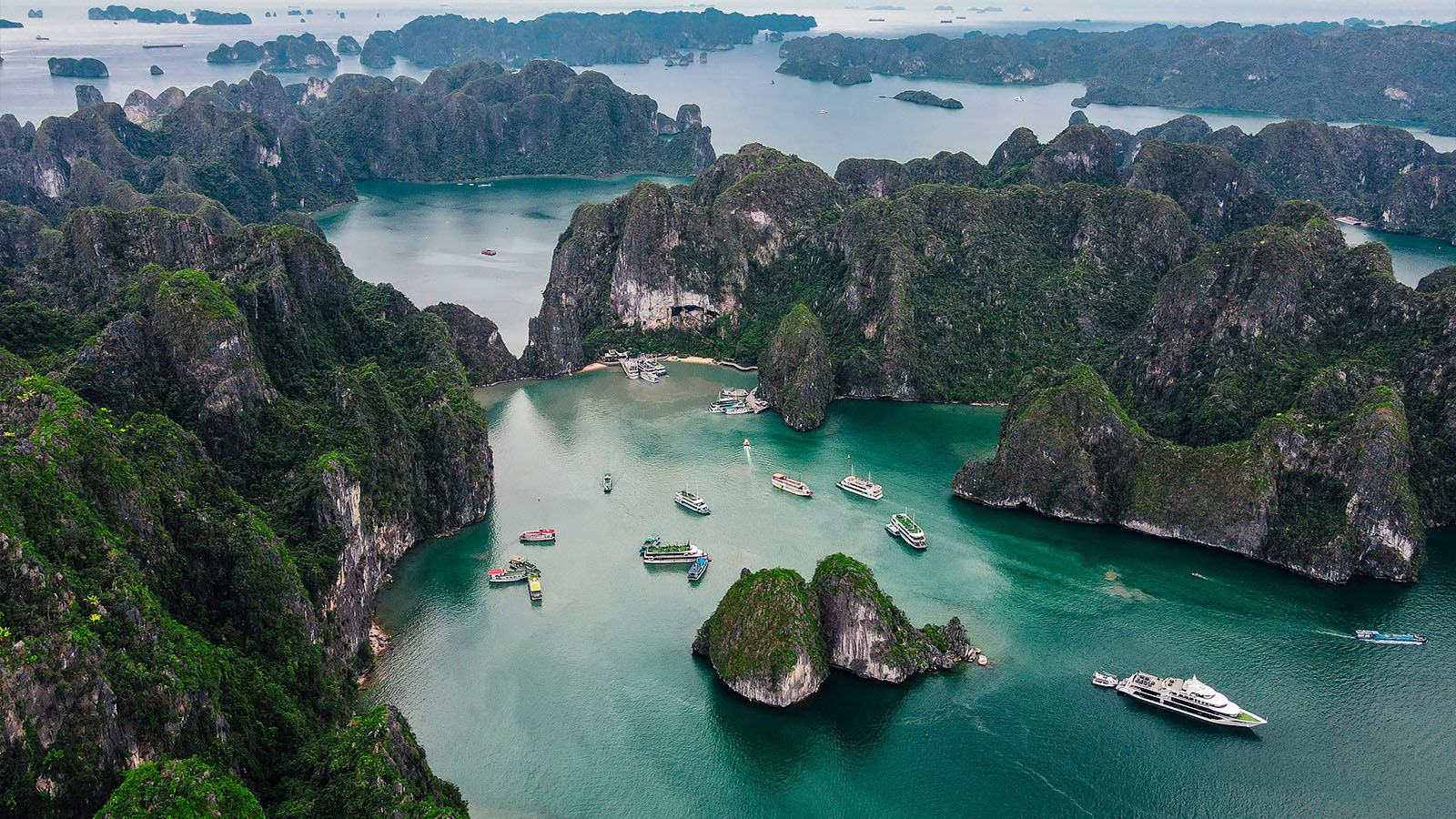




Comment